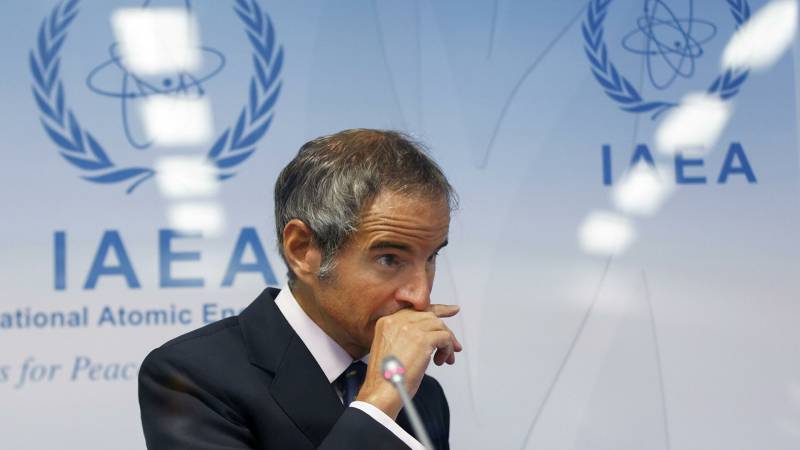As negotiations carefully resume in Vienna to revive the Joint Comprehensive Plan of Action (JCPOA), the head of the UN nuclear watchdog has advised that the agreement be updated in order to ensure the agency’s ability to track Iran’s nuclear program.
“The reality is that we are dealing with a very different Iran,” Rafael Grossi, director of the International Atomic Energy Association (IAEA), told the Associated Press in a Tuesday interview in the United Arab Emirates.
Grossi added that “2022 is so different from 2015 that there will have to be adjustments that take into consideration these new realities so our inspectors can inspect whatever the countries agree at the political table.”
The 2015 deal, reached with Iran by the US, UK, France, Germany, Russia, China, and the European Union, lowered long-standing economic sanctions against Iran in exchange for Iran accepting strict limits on the quality and quantity of uranium it could refine. Tehran was limited to just 3.67% purity of uranium-235 and just enough of the radioactive material to service a handful of nuclear power plants and medical research facilities.
However, in 2018 then-US President Donald Trump claimed without evidence that Iran had secretly been violating the deal and he unilaterally withdrew from it, imposing “maximum pressure” sanctions on Iran and beginning an aggressive military posturing that took the two nations to the brink of war. While unconvinced by US intelligence, the deal’s European partners nonetheless complied with US sanctions, despite protestations by Tehran.
As a consequence, Tehran began stepping back from its commitments made under the deal, following legislation laid out by the Majlis that mandated increases in purity of uranium-235 refined and in volume stored. Iran has publicly stated it is enriching uranium up to 60% purity, while Israel reportedly passed intelligence to Washington late last month showing Iran intends to increase its maximum purity to 90% - enough to build a nuclear weapon.
However, despite claims by Israeli leaders, there was no revival of the country’s nuclear weapons program, abandoned in 2003 and later ruled to be a violation of Islam by the country’s top Islamic legal authority, Ayatollah Ali Khamenei.
Nonetheless, Iran has faced a multi-pronged espionage campaign by Jerusalem that has seen its nuclear scientists co-opted into sabotage actions or brazenly assassinated in broad daylight, along with other acts of sabotage. However, Israeli military intelligence has also said Iran is “not heading toward a bomb right now.”
That was Grossi’s conclusion, as well. “There’s no other country other than those making nuclear weapons reaching those high levels” of uranium enrichment, Grossi told the AP on Tuesday, adding, “I’ve said many times that this doesn’t mean that Iran has a nuclear weapon. But it does mean that this level of enrichment is one that requires an intense verification effort.”
Part of Tehran’s reduction of JCPOA compliance has also been limiting IAEA inspectors to scheduled inspections. The agency has sparred with Iranian authorities over a number of issues, including security cameras at facilities such as Karaj, an agricultural and nuclear medicine research facility that in June was hit by a suspected suicide drone from Israel’s Mossad foreign intelligence service, damaging IAEA equipment there. An agreement on replacing them was only reached on Wednesday.
Grossi, speaking before the Karaj deal, said he wanted to tell Iran there was “no way around” cooperating with IAEA inspectors if the country wants to be “a respected country in the community of nations.”
“We have to work together,” Grossi said. “They must work together. I will make sure they understand that in us they will have a partner.”
In Vienna, diplomats from the administration of US President Joe Biden have accused Iran of lacking seriousness about the negotiations. Although, in a recent bit of posturing US ambassador to the United Nations Linda Thomas-Greenfield told the UN Security Council on Tuesday that Washington was prepared to “lift sanctions inconsistent with our JCPOA commitments, which would allow Iran to receive the economic benefits of the deal.”
"We're convinced that if Iran approaches talks in Vienna with urgency and critique, we can quickly reach and implement an understanding on mutual return,” she added.
However, Iran's permanent representative to the UN, Majid Takht Ravanchi, replied that Tehran needed guarantees Washington wouldn’t “abuse” the deal’s procedures again.






